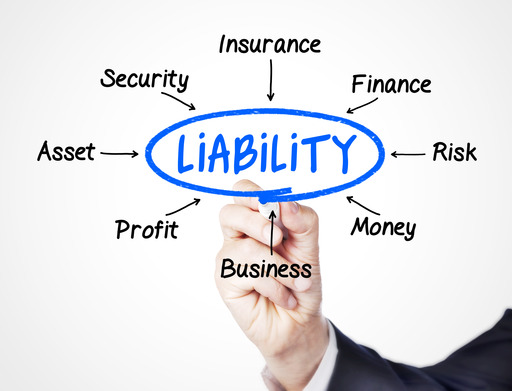Owning and running a small business is an exercise in grappling with the unknown. From the outset, you have no way to predict how quickly your company will grow or, for that matter, if it will flourish at all. Add to that the all too real possibility that you might be sued one day for something that may or may not be your fault or that of one of your employees. It’s enough to make just about any entrepreneur throw up his or her hands in frustration. As the owner of an enterprise yourself, you have probably heard about the importance of liability insurance, a way to protect yourself and your business against some of these unforeseen events. Read on to learn about the various types of coverage in order to secure the survival of your own business.
General Liability Insurance
Commercial general business liability insurance is a business owner’s best friend if someone gets hurt on company property or if you or your employees caused damage to your property. Should you be sued and the plaintiff wins, it will also cover the costs of your defense and any settlements you are required to pay. If you are renting your business property, general liability insurance can protect you from any liability if there is damage to the premises, including that caused by fire. Finally, this insurance can cover you if someone accuses you of false advertising such as copyright infringement, slander and libel.
Don’t fall into the trap of believing that you are immune from the threat of lawsuits. No matter how “nice” your clients may be or how low-level your risk, it only takes one large piece of litigation to turn your once profitable company into a ruined heap. What’s more, the good news is that premiums for this type of coverage are quite low, ranging from $750 to $2,000 depending on the type and amount of coverage you need. Considering that you could spend hundreds of thousands or maybe millions in court, this amounts to quite a bargain. Check with the agent who sold you your property insurance to see if you can incorporate general liability into your package in the form of a Business Owner’s Policy (BOP). The amount of coverage you require will depend on the perceived risk associated with the type of work you do. For example, a building contractor will pay higher premiums than a tax preparer. Particularly if you fall into the low-risk category, a BOP may be an excellent coverage vehicle for you.
Professional Liability Insurance
General liability insurance can go a long way toward protecting you against threats, but for certain types of professionals and companies, it does not go far enough. If you are an expert such as a lawyer, an accountant or a physician, for example, you absolutely need to purchase an additional policy that will protect you against malpractice, negligence and other claims that your clients may levy against you. This coverage is called professional liability, malpractice or errors and omissions (E & O) insurance depending on the profession that is being discussed. Other occupations that require this type of coverage include IT consultants, architects, web developers, engineers and quality control specialists, among many others. In general, if you provide a service or give advice, you should look into this type of insurance. It protects you if you have given incorrect guidance, have failed to perform a task adequately or made a mistake that has a negative impact on one of your clients. In the event that you are sued, this insurance will cover the costs of your legal defense and damages up to your coverage limit. Note, however, that it never pertains to the costs incurred during prosecution for criminal activities. Coverage for data breaches and other technology-related issues is available; however, it is not present in all professional liability insurance policies. Therefore, it is important that you check to be sure it is included in your package if your business is vulnerable to these possibilities.
Product Liability Insurance
If your business manufactures or sells medicines, products or foods to the public, product liability coverage will probably be a must for you. It covers your liability for financial losses or injuries to a third party that were caused by a defect in or malfunction of the product you sold – even if you were not involved at all in inventing or manufacturing it. The logic is that if you were a link in the chain that brought a product to market, your company can be sued for negligence. In many cases, product liability coverage is or can become a part of your existing Business Owner’s Policy. Check with your insurance professional to be sure that you have the comprehensive coverage you need. Finally, while it might be tempting to under-report the number of products you sell or misrepresent the nature of your business in order to save money on your premiums, you may find yourself subject to severe penalties for under-insuring.
As a business owner, you understand the importance of furnishing customers with excellent products and services. Furthermore, you know the benefits that come from treating your employees well and promoting safety, efficiency and high morale in the workplace. Taking the time to invest wisely in the insurance policies that can further protect you, your staff and your customers is the next step in preserving the integrity of your company and helping it to flourish. While you cannot control injuries, property damage or lawsuits, you certainly can take steps to minimize the devastating effects they can have on your enterprise. Liability coverage in all of its forms is well worth investigating further and incorporating into your company’s security net.

